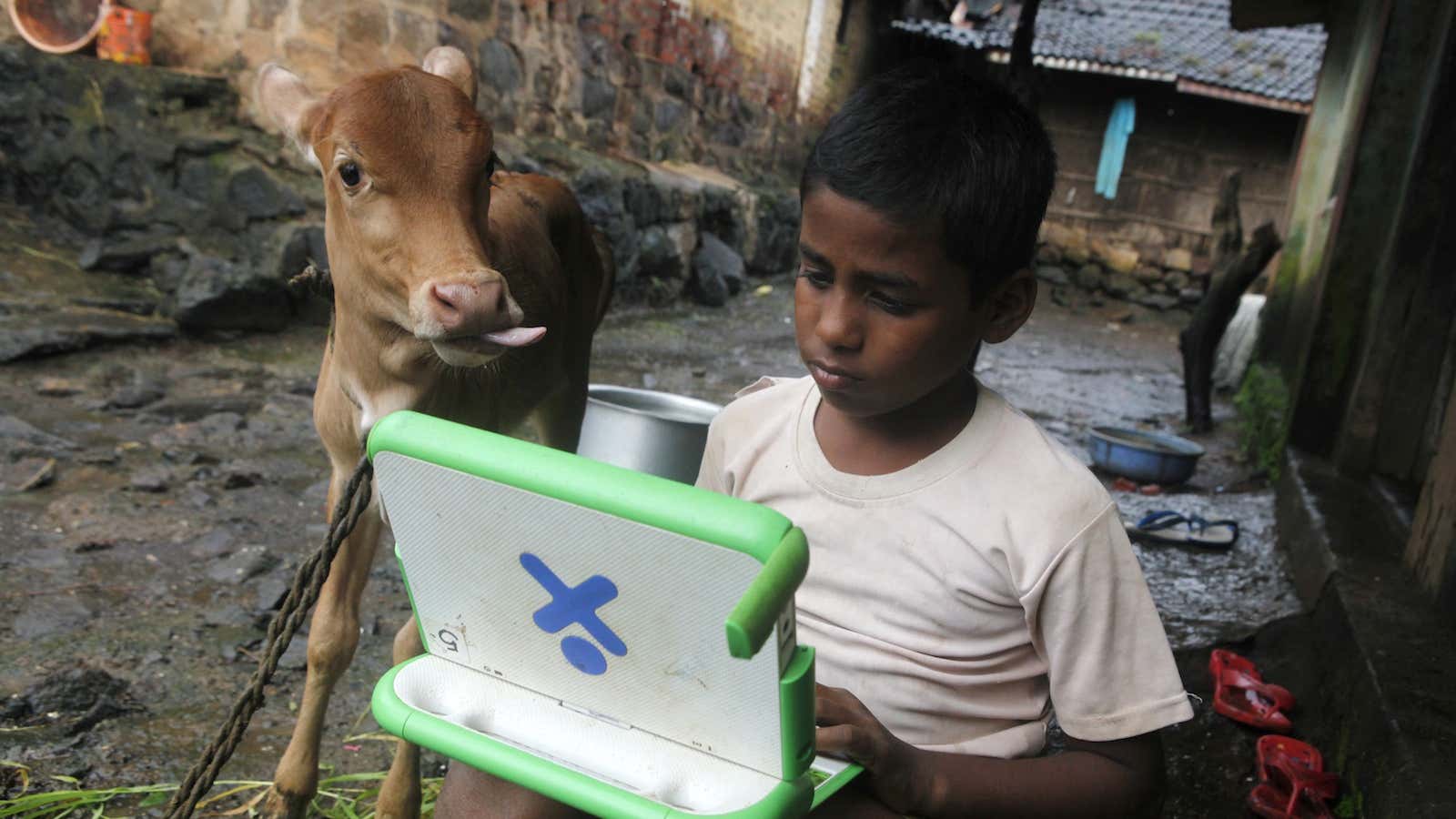While we’re talking about net neutrality, it’s useful to remember that only a tiny number of Indians have access to the internet.
Even though India is one of the fastest growing economies globally, it has a lot of catching up to do on the technology front. A mere 15% of Indians use the internet at all, according to a new report (pdf) by the Switzerland-based World Economic Forum (WEF). And only 33% of the population own mobile phones.
When it comes to individual technology usage, India ranks 121, behind countries like China, Sri Lanka, Vietnam, Indonesia, and the Philippines. The WEF took into account factors such as how people own mobile phones or computers, how often they use internet, and if they are active on social media, to measure the individual usage.
As of October 2014, India had 278 million internet users according to the Internet and Mobile Association of India. China, on the other hand, had more than 600 million internet users. According to the WEF, there are only three mobile broadband subscriptions for every 100 Indians.
“The report shows that the digital divide across nations is increasing and this is of great concern, given the relentless pace of technological development. Less developed nations risk being left further behind and concrete actions are needed urgently to address this,” said Soumitra Dutta, a dean at the Samuel Curtis Johnson Graduate School of Management at Cornell University and co-editor of the report.
There is still a silver lining: The WEF said India tops all the 143 countries it assessed when it comes to affordability of internet and communication technologies in general.
But with the recent uncertainty about net neutrality, India’s internet may become more restricted and expensive.
Here is how Quartz defined net neutrality in a previous story:
Net neutrality means, in plain English, that internet service providers can’t censor stuff and can’t give preferential treatment (e.g., faster data speeds) to some stuff over other stuff. Without it, the power of governments and large companies to control what people see online, already considerable, would grow even stronger.
The Telecom Authority of India (TRAI) put up a consultation paper (pdf) on March 27, proposing to allow telecom service providers to charge users for over-the-top (OTT) services— such as WhatsApp, Skype, Google Talk—separately in addition to internet usage charges.
Next week, TRAI will decide on the matter, but if it does decide to go anti-net neutrality, many more Indians will be denied fair and free access to the internet and new innovation.
Here is how the WEF ranks India out of 143 countries:
